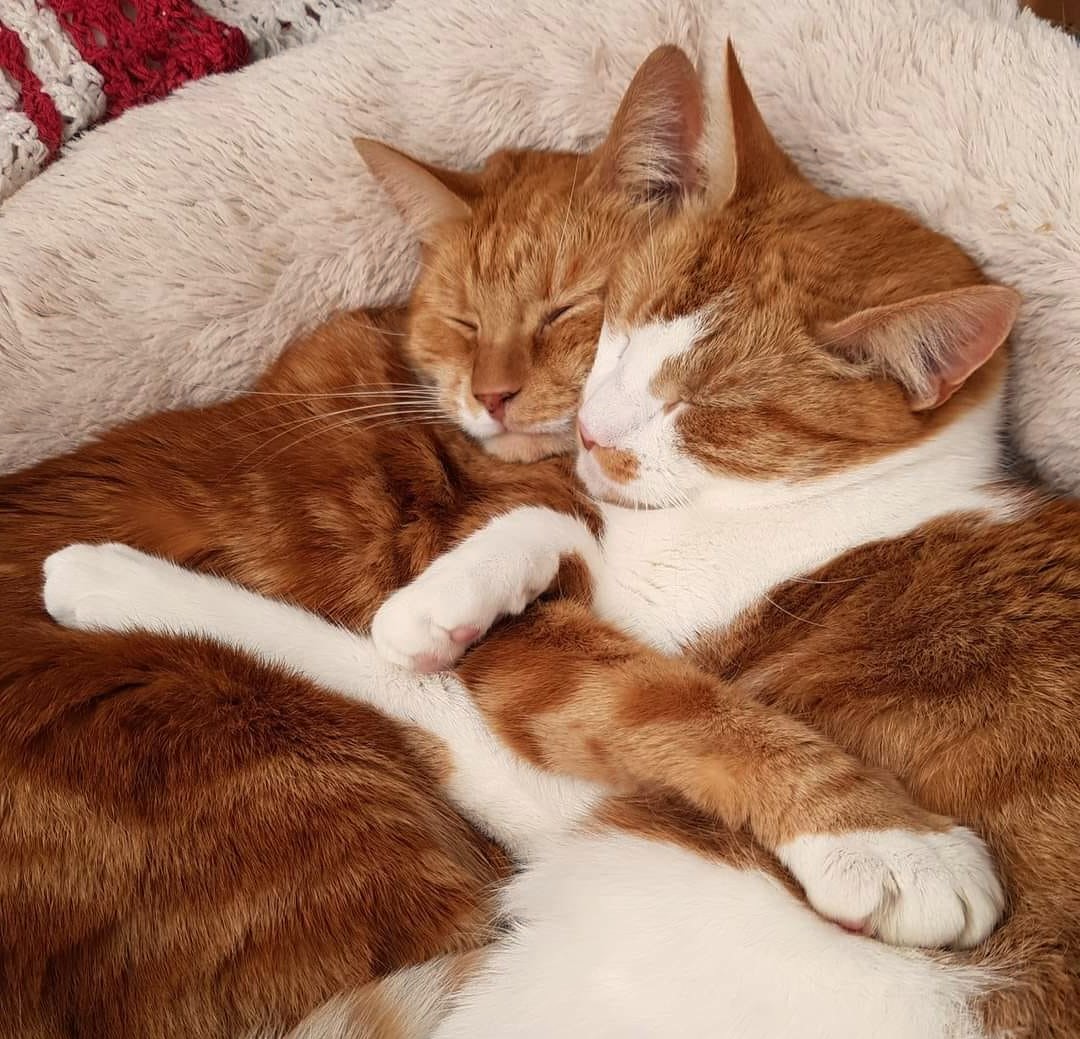I adopted my rescue cat Bernard over a decade ago, and we’ve shared some amazing experiences ever since. In fact, we’ve lived on both sides of the planet! Not many cats have done that!
Adopting a rescue cat can be as rewarding, if not more so, than buying a kitten. In this guide we’ll cover the pros and cons of adopting a rescue cat, and by the end of this short guide you’ll know if it’s the right choice for you.
Related: How to rescue an abandoned litter of kittens.
Why would you adopt a rescue cat?
Some are put off from adopting a rescue cat. Were they one of those “bad seeds” who act all cute then all of a sudden lash out?
Not necessarily!
There are many reasons why a cat may have to be rehomed.
It might be the original has passed away or is no longer well enough to look after her. This happens more often than we would imagine, leaving many adorable felines up for adoption.
Sometimes a rescue cat can have behavioural problems. These may have been too much for the original owner to deal with, but you may have more resolve.
Before you adopt a rescue cat you must consider if you have the patience and facilities to cater for any special requirements a cat may have.
Choosing the right rescue cat
Once you have decided to give a home to a rescue cat (good for you!), your next step is a search to find your ideal companion.
Any good cat rescue centre will want to do a home visit to make sure your home is suitable. Please do not be offended by this, it’s because they care about the wellbeing of the cat. If they decide your home or lifestyle isn’t a good fit, then politely ask why – maybe you can be proactive and address any issues.
The shelter will already have information and experience with individual cats, and some may not be suitable for families or smaller apartments. This is an essential part of the rehoming process because the rescue centre will want to place their cats with a “forever home”, and it is because of this most centres and shelters offer excellent after care support to help you and your new cat adjust.
Even if you have fixed ideas on the type of cat you want to rehome, take the advice of the person who visits your home, as to what type of cat will suit you and your home best.
If you do not have a home visit, make sure you explain your exact circumstances and home routine to the person who takes your application so they assist you in finding a cat that is the best fit to you and your home.
Bringing home your adopted cat
When you bring your cat home, you will need to be patient.
Have an area where your new cat can retreat to if she is feeling unsettled or threatened.
Ideally you will have come home not only with the cat, but with something the cat is familiar with, like a blanket or toy. This should be kept close to your cat at all times until she has settled in.
If it is your intention the cate uses your garden rather than be a house cat, be prepared to use a litter tray and keep her indoors for at least two weeks before you allow her to go into your garden. This allows her to make your house her home, and most importantly teach her it is where her food is – this is the best way to prevent a cat from straying too far.
Depending on why your cat needed rehoming will determine your approach to the way in which you settle her in. If she has had behavioural problems, then you would have been given guidelines by the rescue centre on how to deal with those issues. You must follow those guidelines if the rehoming is to be a success.
If your cat has lost her previous owner through death or illness, be aware that it is not just humans who have to grieve over the loss of a loved one. Your new cat may go through many stages of grieving and adjustment before she settles in with you.
I’m sure within a few weeks, you and your adopted cat will be a happy family!
Even laid back adopted cats take time to settle
Even if you pick a chilled out moggy, keep in mind going to a new home can be very unsettling for him. Even for the most laid back cat in the world.
Making the transition as smooth as possible will ensure a greater chance of early success.
To give a new home to a rescue cat is a wonderful thing, and you owe it to her and to yourself to take every possible step to make sure it is a success.
Have you adopted a rescue cat? How have you found the experience?
We would love to hear your experiences in the comments!
Hugs!
Gina & Maisy, and our furry feline family member Bernard (who should get more of a look in on DogZone!)



Leave a Reply